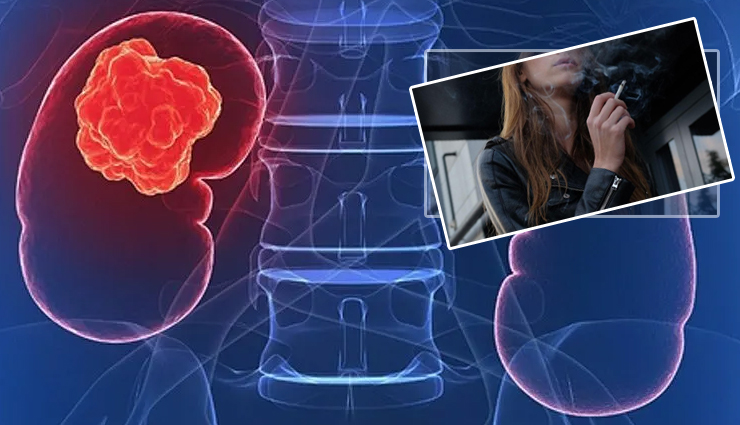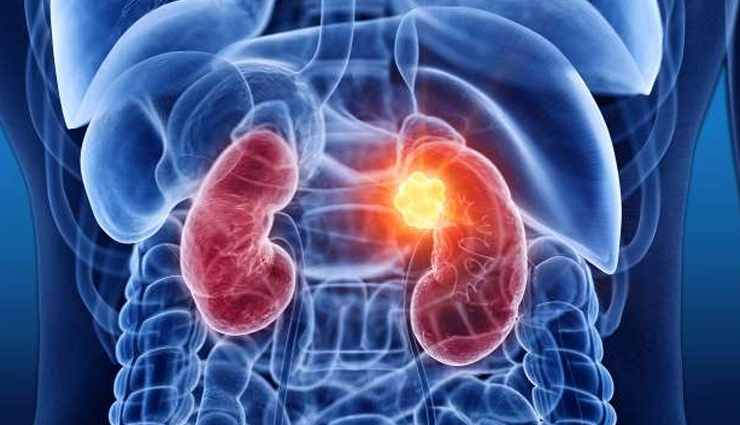- Home›
- Healthy Living›
- Smoking And Kidney Cancer: Understanding The Link On World No Tobacco Day
Smoking And Kidney Cancer: Understanding The Link On World No Tobacco Day
By: Priyanka Maheshwari Wed, 31 May 2023 09:02:58

Tobacco use dramatically raises the risk of kidney cancer, a potentially fatal illness. Toxic compounds in cigarette smoke can cause kidney damage, genetic alterations, and an inflammatory environment favourable to cancer growth. Quitting smoking, on the other hand, can significantly lower the risk of kidney cancer over time.
Let us reaffirm our commitment to tobacco control, increasing awareness about the risks of smoking, and assisting individuals on their road to a smoke-free life on World No Tobacco Day. We can safeguard our kidneys, enhance our general health, and contribute to a healthier, tobacco-free world by stopping smoking.
In this article, we will explore the link between smoking and kidney cancer, highlighting the mechanisms involved and the importance of quitting smoking to reduce the risk of this potentially life-threatening disease.

Understanding Kidney Cancer:
Kidney cancer, also known as renal cell carcinoma, originates in the cells of the kidneys, the organs responsible for filtering waste and excess fluid from the blood to form urine. It is among the top ten most common cancers worldwide, and its incidence has been steadily increasing over the years. Several risk factors contribute to the development of kidney cancer, and smoking is recognized as a prominent one.

The Connection between Smoking and Kidney Cancer:
Several scientific investigations have found a solid link between smoking and an increased risk of kidney cancer. Smokers are more likely than nonsmokers to get kidney cancer, and the risk is directly connected to the length and severity of smoking. According to research, smoking might raise the risk of kidney cancer by up to 50%.

Mechanisms Involved:
When breathed, the poisonous compounds in tobacco smoke, including carcinogens and other dangerous substances, are absorbed into the bloodstream. These molecules then circulate throughout the body and eventually reach the kidneys. The precise processes by which smoking causes kidney cancer are unknown, however various possibilities have been offered.
One theory suggests that the carcinogens in tobacco smoke can directly damage the DNA in kidney cells, leading to genetic mutations that can initiate the development of cancer. Another theory proposes that smoking may impact the body's immune response, weakening the ability to detect and eliminate cancer cells, thus facilitating tumor growth.
Furthermore, the harmful chemicals in cigarette smoke can cause inflammation and oxidative stress in the kidneys, which can disrupt normal cellular functions and contribute to the development of cancerous growths.

Quitting Smoking: A Vital Step for Kidney Cancer Prevention:
The good news is that the risk of kidney cancer decreases after quitting smoking, even for long-term smokers. Research shows that the risk gradually declines over time, and after several years of tobacco cessation, it can approach that of a non-smoker.
World No Tobacco Day serves as a reminder of the importance of quitting smoking to reduce the risk of kidney cancer and other tobacco-related diseases. By quitting smoking, individuals take a proactive step towards safeguarding their health and well-being.
Support and Resources for Smoking Cessation:
Quitting smoking is a difficult process, but it is doable with the correct help and tools. Nicotine replacement treatment, medicines, counselling, and behavioural support programmes are some of the methods available to assist people quit smoking. Seeking help from healthcare experts, joining support groups, or using mobile apps developed for smoking cessation can all boost your chances of success.





